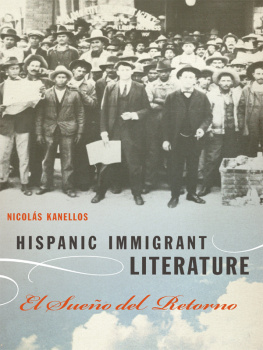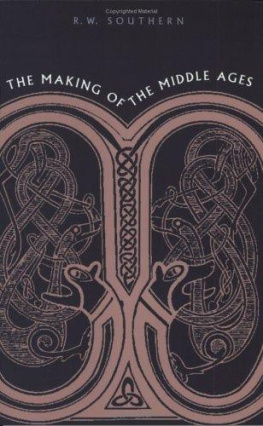CHAPTER I. THE HERITAGE FROM SPAIN AND PORTUGAL
Table of Contents
At the time of the American Revolution most of the New World still belonged to Spain and Portugal, whose captains and conquerors had been the first to come to its shores. Spain had the lion's share, but Portugal held Brazil, in itself a vast land of unsuspected resources. No empire mankind had ever yet known rivaled in size the illimitable domains of Spain and Portugal in the New World; and none displayed such remarkable contrasts in land and people. Boundless plains and forests, swamps and deserts, mighty mountain chains, torrential streams and majestic rivers, marked the surface of the country. This vast territory stretched from the temperate prairies west of the Mississippi down to the steaming lowlands of Central America, then up through tablelands in the southern continent to high plateaus, miles above sea level, where the sun blazed and the cold, dry air was hard to breathe, and then higher still to the lofty peaks of the Andes, clad in eternal snow or pouring fire and smoke from their summits in the clouds, and thence to the lower temperate valleys, grassy pampas, and undulating hills of the far south.
Scattered over these vast colonial domains in the Western World were somewhere between 12,000,000 and 19,000,000 people subject to Spain, and perhaps 3,000,000, to Portugal; the great majority of them were Indians and negroes, the latter predominating in the lands bordering on the Caribbean Sea and along the shores of Brazil. Possibly one-fourth of the inhabitants came of European stock, including not only Spaniards and their descendants but also the folk who spoke English in the Floridas and French in Louisiana.
During the centuries which had elapsed since the entry of the Spaniards and Portuguese into these regions an extraordinary fusion of races had taken place. White, red, and black had mingled to such an extent that the bulk of the settled population became half-caste. Only in the more temperate regions of the far north and south, where the aborigines were comparatively few or had disappeared altogether, did the whites remain racially distinct. Socially the Indian and the negro counted for little. They constituted the laboring class on whom all the burdens fell and for whom advantages in the body politic were scant. Legally the Indian under Spanish rule stood on a footing of equality with his white fellows, and many a gifted native came to be reckoned a force in the community, though his social position remained a subordinate one. Most of the negroes were slaves and were more kindly treated by the Spaniards than by the Portuguese.
Though divided among themselves, the Europeans were everywhere politically dominant. The Spaniard was always an individualist. Besides, he often brought from the Old World petty provincial traditions which were intensified in the New. The inhabitants of towns, many of which had been founded quite independently of one another, knew little about their remote neighbors and often were quite willing to convert their ignorance into prejudice: The dweller in the uplands and the resident on the coast were wont to view each other with disfavor. The one was thought heavy and stupid, the other frivolous and lazy. Native Spaniards regarded the Creoles, or American born, as persons who had degenerated more or less by their contact with the aborigines and the wilderness. For their part, the Creoles looked upon the Spaniards as upstarts and intruders, whose sole claim to consideration lay in the privileges dispensed them by the home government. In testimony of this attitude they coined for their oversea kindred numerous nicknames which were more expressive than complimentary. While the Creoles held most of the wealth and of the lower offices, the Spaniards enjoyed the perquisites and emoluments of the higher posts.
Though objects of disdain to both these masters, the Indians generally preferred the Spaniard to the Creole. The Spaniard represented a distant authority interested in the welfare of its humbler subjects and came less into actual daily contact with the natives. While it would hardly be correct to say that the Spaniard was viewed as a protector and the Creole as an oppressor, yet the aborigines unconsciously made some such hazy distinction if indeed they did not view all Europeans with suspicion and dislike. In Brazil the relation of classes was much the same, except that here the native element was much less conspicuous as a social factor.
These distinctions were all the more accentuated by the absence both of other European peoples and of a definite middle class of any race. Everywhere in the areas tenanted originally by Spaniards and Portuguese the European of alien stock was unwelcome, even though he obtained a grudging permission from the home governments to remain a colonist. In Brazil, owing to the close commercial connections between Great Britain and Portugal, foreigners were not so rigidly excluded as in Spanish America. The Spaniard was unwilling that lands so rich in natural treasures should be thrown open to exploitation by others, even if the newcomer professed the Catholic faith. The heretic was denied admission as a matter of course. Had the foreigner been allowed to enter, the risk of such exploitation doubtless would have been increased, but a middle class might have arisen to weld the the discordant factions into a society which had common desires and aspirations. With the development of commerce and industry, with the growth of activities which bring men into touch with each other in everyday affairs, something like a solidarity of sentiment might have been awakened. In its absence the only bond among the dominant whites was their sense of superiority to the colored masses beneath them.
Manual labor and trade had never attracted the Spaniards and the Portuguese. The army, the church, and the law were the three callings that offered the greatest opportunity for distinction. Agriculture, grazing, and mining they did not disdain, provided that superintendence and not actual work was the main requisite. The economic organization which the Spaniards and Portuguese established in America was naturally a more or less faithful reproduction of that to which they had been accustomed at home. Agriculture and grazing became the chief occupations. Domestic animals and many kinds of plants brought from Europe throve wonderfully in their new home. Huge estates were the rule; small farms, the exception. On the ranches and plantations vast droves of cattle, sheep, and horses were raised, as well as immense crops. Mining, once so much in vogue, had become an occupation of secondary importance.
On their estates the planter, the ranchman, and the mine owner lived like feudal overlords, waited upon by Indian and negro peasants who also tilled the fields, tended the droves, and dug the earth for precious metals and stones. Originally the natives had been forced to work under conditions approximating actual servitude, but gradually the harsher features of this system had given way to a mode of service closely resembling peonage. Paid a pitifully small wage, provided with a hut of reeds or sundried mud and a tiny patch of soil on which to grow a few hills of the corn and beans that were his usual nourishment, the ordinary Indian or half-caste laborer was scarcely more than a beast of burden, a creature in whom civic virtues of a high order were not likely to develop. If he betook himself to the town his possible usefulness lessened in proportion as he fell into drunken or dissolute habits, or lapsed into a state of lazy and vacuous dreaminess, enlivened only by chatter or the rolling of a cigarette. On the other hand, when employed in a capacity where native talent might be tested, he often revealed a power of action which, if properly guided, could be turned to excellent account. As a cowboy, for example, he became a capital horseman, brave, alert, skillful, and daring.









